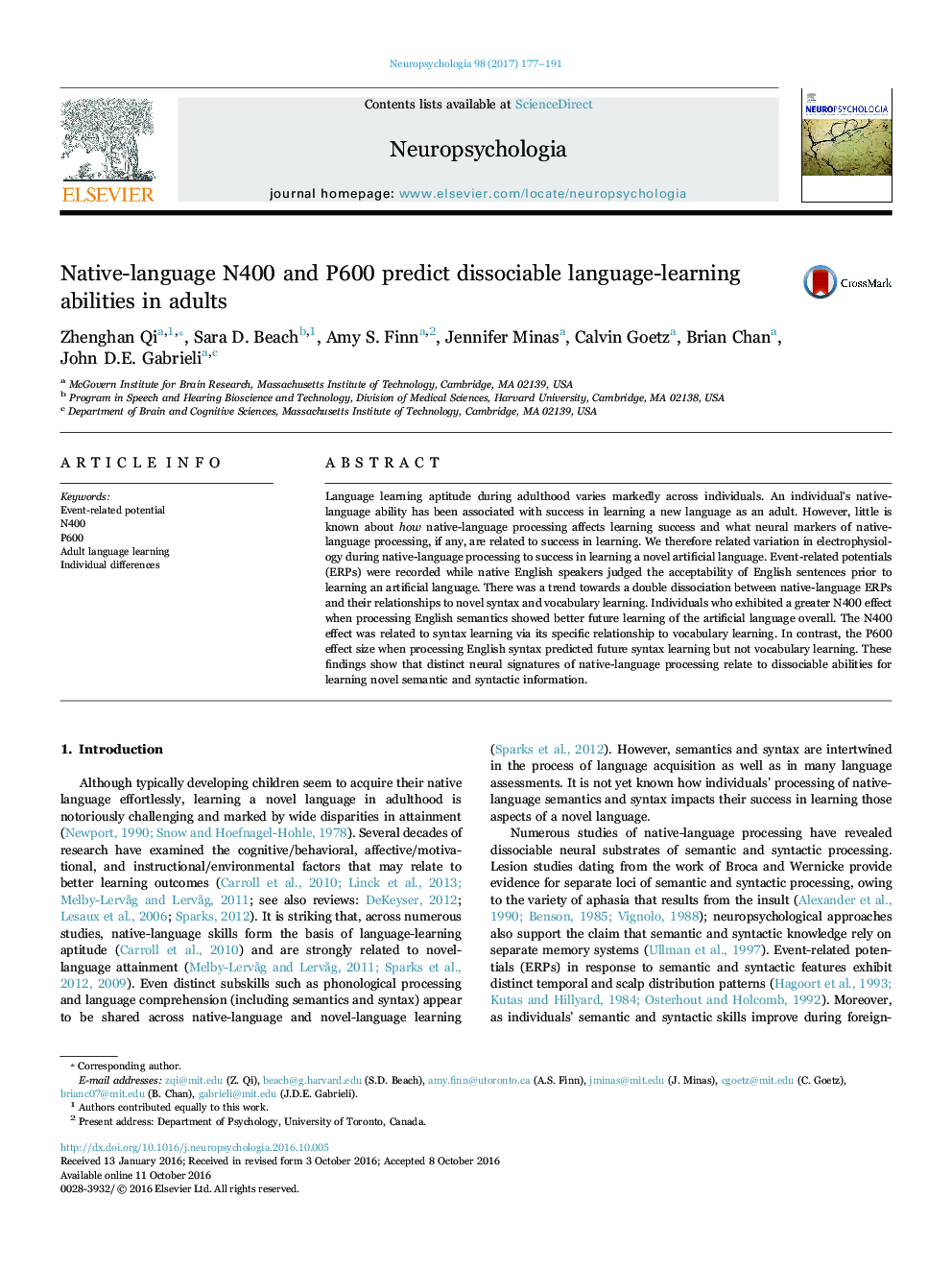| Article ID | Journal | Published Year | Pages | File Type |
|---|---|---|---|---|
| 5045280 | Neuropsychologia | 2017 | 15 Pages |
â¢Substantial individual differences exist in native-language N400 and P600 responses.â¢Adults' abilities to learn novel vocabulary and syntax are dissociable.â¢Vocabulary learning is better predicted by the N400 than by the P600.â¢The P600 predicts morphosyntactic learning, but not vocabulary learning.
Language learning aptitude during adulthood varies markedly across individuals. An individual's native-language ability has been associated with success in learning a new language as an adult. However, little is known about how native-language processing affects learning success and what neural markers of native-language processing, if any, are related to success in learning. We therefore related variation in electrophysiology during native-language processing to success in learning a novel artificial language. Event-related potentials (ERPs) were recorded while native English speakers judged the acceptability of English sentences prior to learning an artificial language. There was a trend towards a double dissociation between native-language ERPs and their relationships to novel syntax and vocabulary learning. Individuals who exhibited a greater N400 effect when processing English semantics showed better future learning of the artificial language overall. The N400 effect was related to syntax learning via its specific relationship to vocabulary learning. In contrast, the P600 effect size when processing English syntax predicted future syntax learning but not vocabulary learning. These findings show that distinct neural signatures of native-language processing relate to dissociable abilities for learning novel semantic and syntactic information.
